What is a Hard Wired Smoke Detector: Full Breakdown
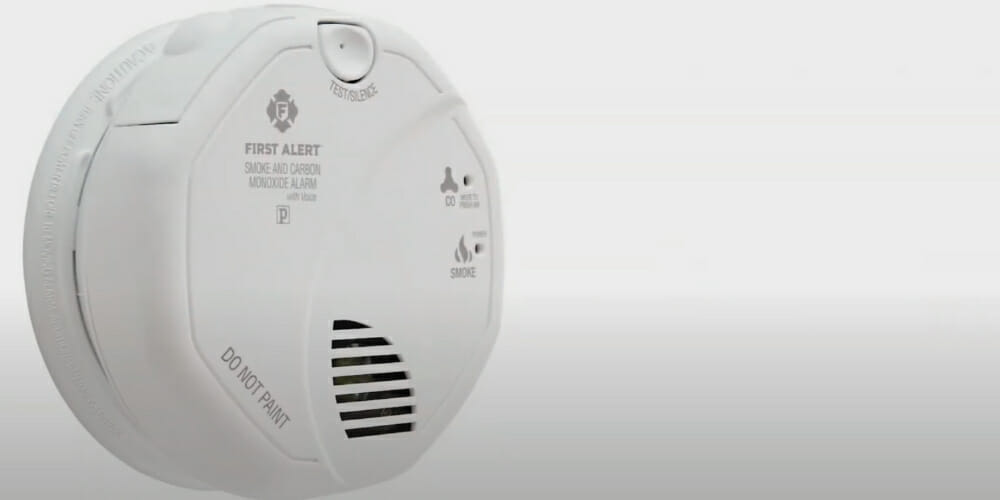
In this blog post, we’ll delve into one type of smoke detector: hard-wired smoke detectors.
So, what exactly is a hard-wired smoke detector? It’s an alarm system that connects directly to your home’s electrical wiring. Unlike battery-operated models, it doesn’t rely solely on batteries. This means even if the batteries die out, as long as electricity runs through your house, it’ll keep working.
We’ll explore how they work and why many professionals recommend them for home safety in the upcoming sections of this article.
Understanding What a Hard Wired Smoke Detector Is
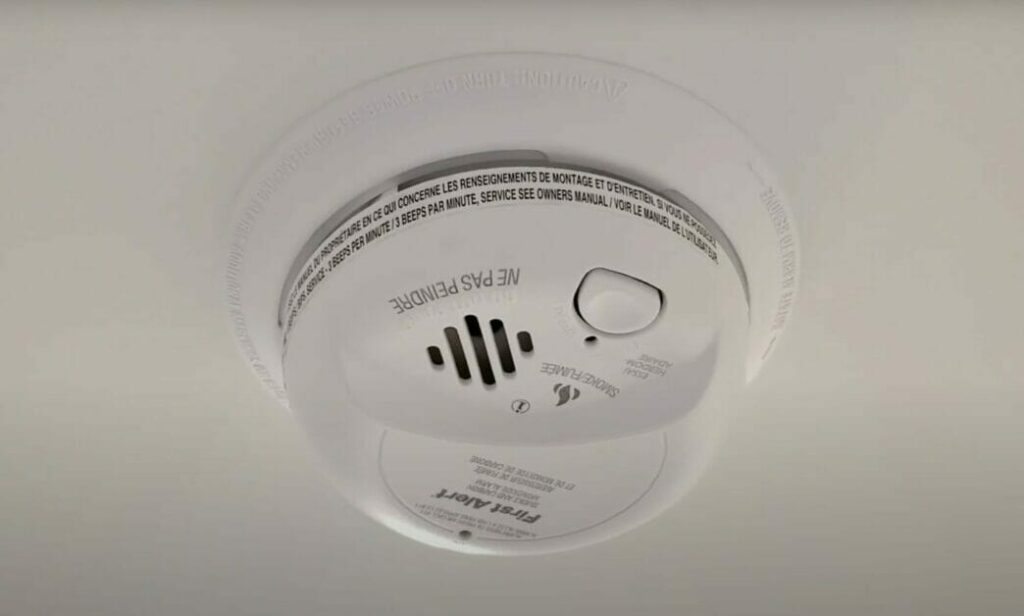
Hard-wired smoke detectors offer several key advantages over their battery-operated counterparts:
- Continuous Power Supply: Since they’re hooked up to your house’s main electricity line, there’s no need to worry about batteries dying at crucial moments.
- Interconnected: Most models can be interconnected. This means if one alarm goes off, all of them do — giving you more time to react if there’s a fire anywhere in your home.
- Reliable: They’re incredibly reliable because of the constant power source and interconnected nature.
Don’t get me wrong – hard-wired smoke detectors still have backup batteries in case of a power outage. It’s like having an extra layer of protection for those unexpected situations.
There is some technical stuff involved with hard-wired smoke detectors, too, but don’t sweat it!
The installation process typically involves three wires: black (hot), white (neutral), and red or yellow (interconnect). And yes, setup can be more challenging than simply screwing in a battery-operated detector – but trust me when I say it’s worth the effort!
The Importance of a Hard Wired Smoke Detector
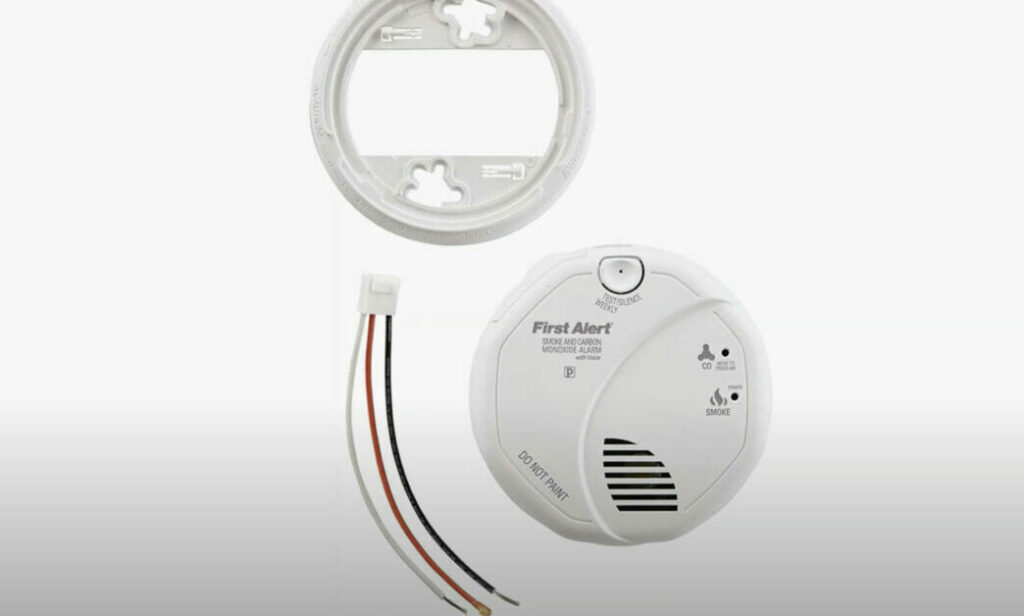
Hard-wired smoke detectors offer advantages that can make a lifesaving difference in emergencies.
One reason I’m a big fan of hard-wired systems is their reliability. Unlike battery-operated units, they connect directly to your home’s electrical system.
This means they’re always on and ready to alert you to danger, even if the power goes out! That’s because they’ve got backup batteries for such situations—so there’s no risk of them failing when you need them most.
Another major advantage is the interconnectedness of these devices. In many homes, especially larger ones, hearing an alarm triggered entirely in a far-off room or on another floor may be difficult.
With hard-wired models, though? When one unit detects smoke, all alarms throughout your house go off simultaneously. This means everyone gets alerted simultaneously—no matter where they are.
On top of that, some modern hard-wired detectors come with smart features like remote notifications and even voice alerts – which can provide more detailed information about potential hazards!
Here are some quick stats:
| Type | Backup Battery | Interconnected Alerts | Smart Features |
|---|---|---|---|
| Hard Wired | Yes | Yes | Often |
| Battery Only | No | No | Rarely |
When it comes down to it, having reliable detection and immediate notification in case of fire aren’t just conveniences—they could very well save lives!
So, while battery-only models might seem like the cheaper option initially, investing in a hard-wired system provides better long-term value—not just for your wallet but also for your peace of mind.
That’s why I’d always recommend hard-wired smoke detectors over alternatives—they offer more comprehensive protection for you and your home.
Differentiating Between Battery Operated and Hard Wired Detectors
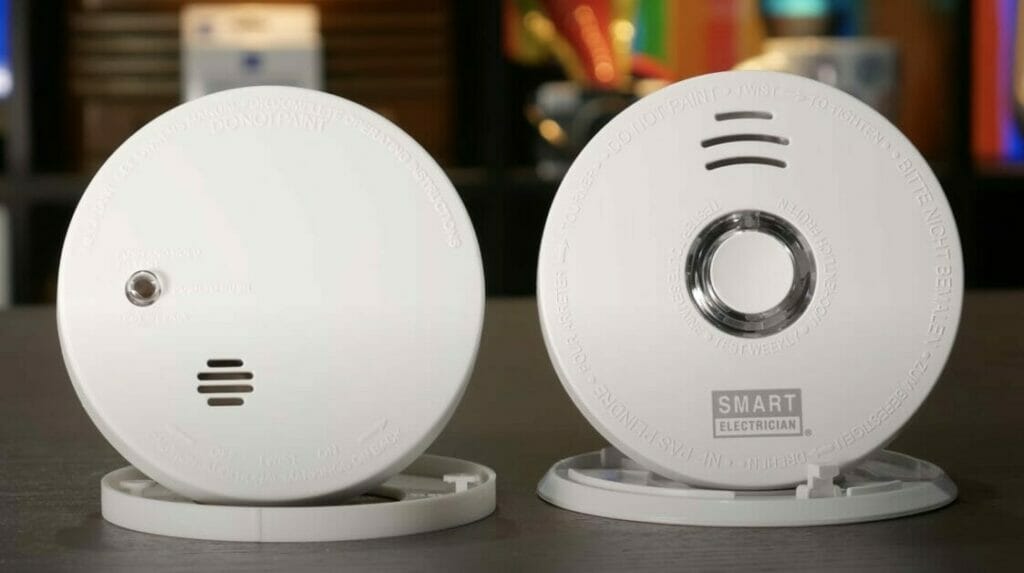
Battery Operated Detectors are easy to install but require routine battery checks, while hard-wired detectors have a constant power supply but might require professional installation.
Below is a concise comparison between battery-operated and hard-wired smoke detectors, highlighting their differences and factors to consider when choosing between them.
| Aspect | Battery Operated Detectors | Hard-Wired Detectors |
|---|---|---|
| Power Source | No protection if the battery is dead | Connected to home’s electrical system |
| Installation | Easy installation anywhere | Often requires professional installation |
| Portability | Portable and can be placed anywhere | Fixed in place within your home |
| Battery Maintenance | Requires regular battery checks | Backup batteries for power outages |
| Constant Protection | Constant protection, even during power loss | We may need multiple detectors for coverage |
| Professional Installation | Not required | Often required for electrical connection |
| Interconnection (if applicable) | Does not interconnect with other detectors | Interconnects with other detectors |
| Consideration in Larger Homes | May need multiple detectors for coverage | Linked detectors offer broader coverage |
| Decision Factors | Easy installation, routine battery checks | Constant power, potential installation cost |
Both kinds come with their own set of pros and cons. It’s up to you as a homeowner or renter – depending on whether hassle-free setup or consistent performance tops your priority list.
How Does a Hard-Wired Smoke Detector Function?
The basic principle behind these devices is simple yet effective. They use two types of sensors – photoelectric and ionization.
Let’s dive into each sensor type:
- Photoelectric Sensors: These work on the principle of light reflection. When there’s no smoke, light from an LED within the detector passes straight across without hitting the sensor. However, when smoke enters, it scatters this light, and some hit the sensor, which triggers the alarm.
- Ionization Sensors: Unlike photoelectric sensors, ionization sensors rely on tiny amounts of radioactive material to detect smoke. Don’t worry—it’s completely safe! How it works is that this material creates an electrical current inside a small chamber in the detector. When smoke particles enter this chamber, they disrupt this current and trigger the alarm.
Though it may seem complex at first glance, these marvels of technology are quite straightforward once broken down into their parts—and extremely vital for our safety.
Installation Process for a Hard Wired Smoke Detector
Step 1: Turn Off the Circuit Breaker
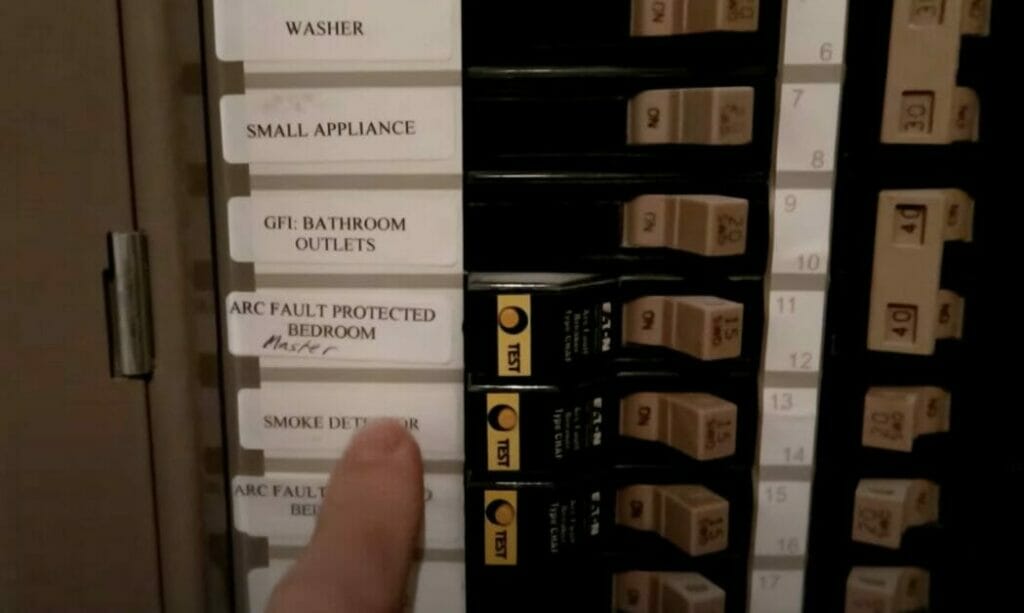
- Before beginning any work, turn off the circuit breaker that supplies power to the area where you’ll install the smoke detector. This ensures your safety by preventing electric current from flowing through the wires.
Step 2: Gather the Necessary Tools
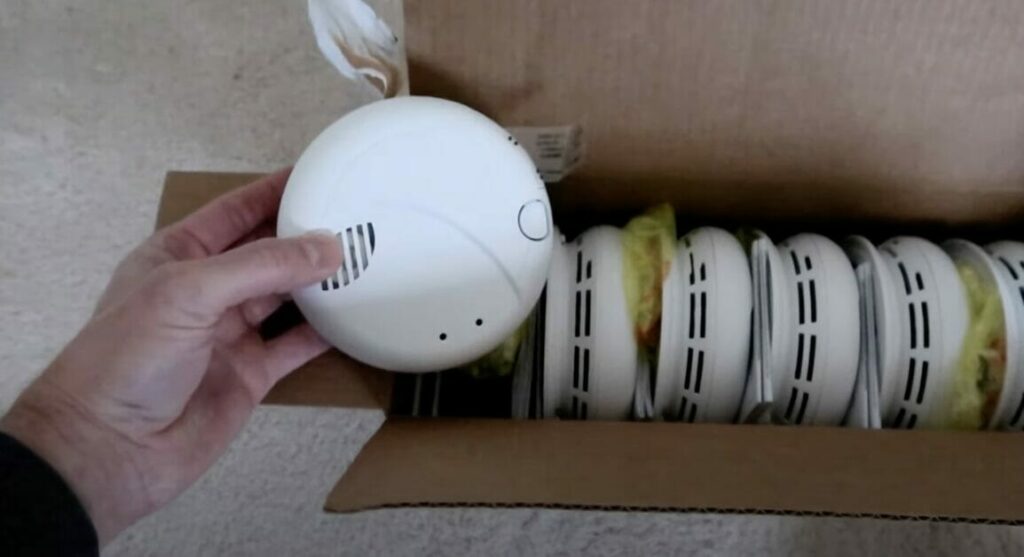
- Collect the tools you’ll need for the installation: wire strippers, a screwdriver (usually Phillips’s head), and electrical tape. Having these tools ready will make the process smoother.
Step 3: Wiring the Detector
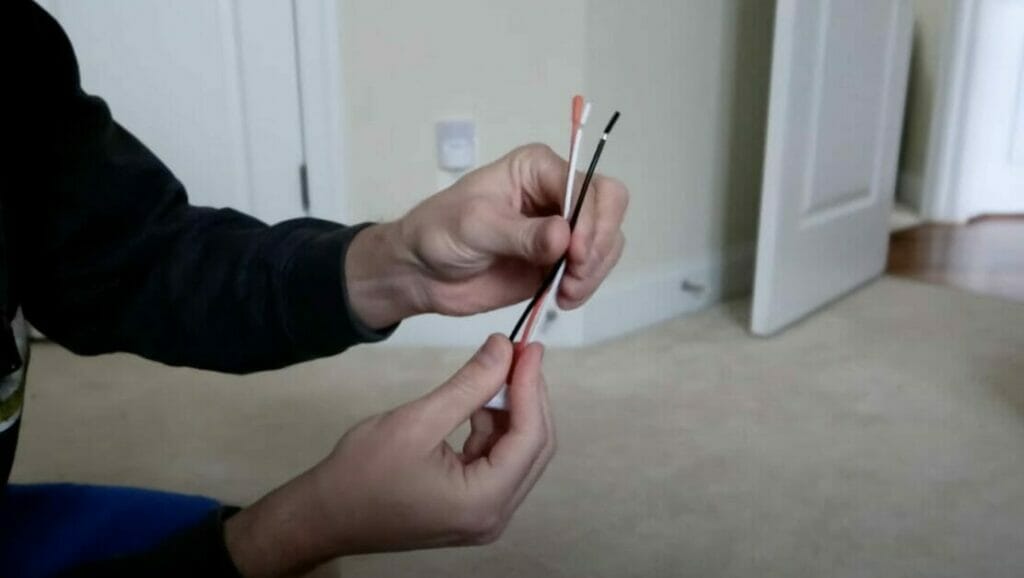
- Identify the wires on the smoke detector: black (hot), white (neutral), and red or yellow (interconnect).
- Match the colors: Connect the black wire from the smoke detector to the black wire in your ceiling. Connect the white wire from the smoke detector to the white wire in your ceiling.
- Interconnect wire: If present, connect the red or yellow wire from the smoke detector to the same-colored wire in the ceiling box. This interconnects all detectors, ensuring they trigger together if one detects smoke.
Step 4: Secure the Connections
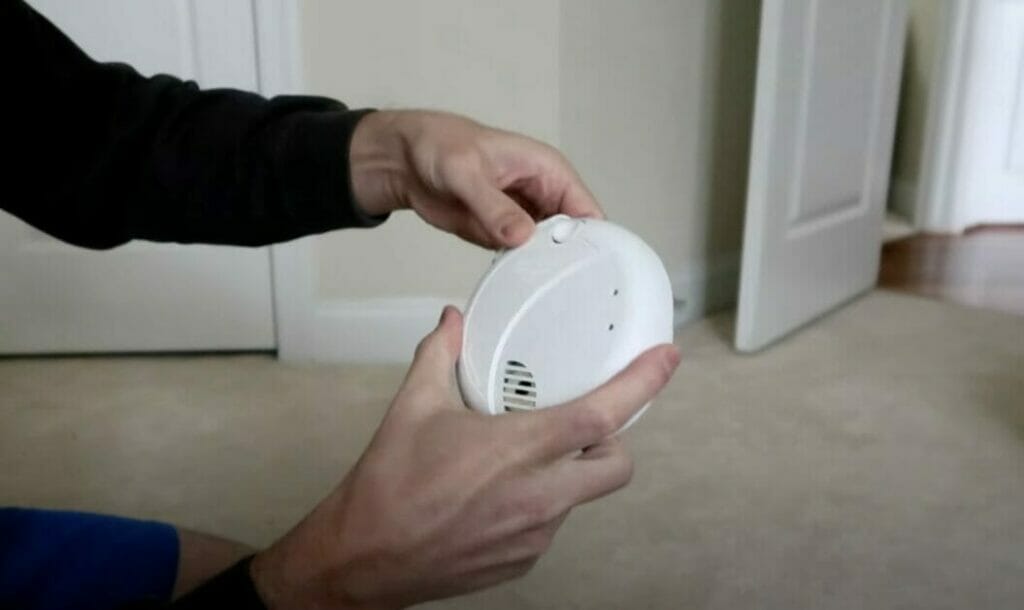
- Use wire nuts to securely join the wires together. After connecting, wrap each wire nut and its connected wires with electrical tape to provide extra insulation and protection.
Step 5: Attach the Smoke Detector Base
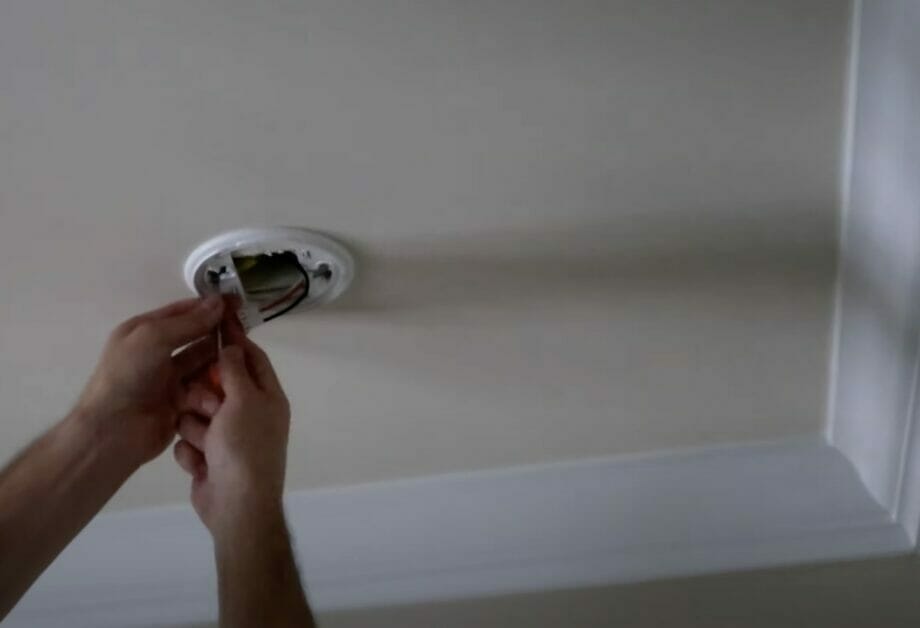
- Take the smoke detector base and line it up with the ceiling box.
- Use the provided screws to secure the base in place. Make sure it’s tightly attached.
Step 6: Install the Smoke Detector
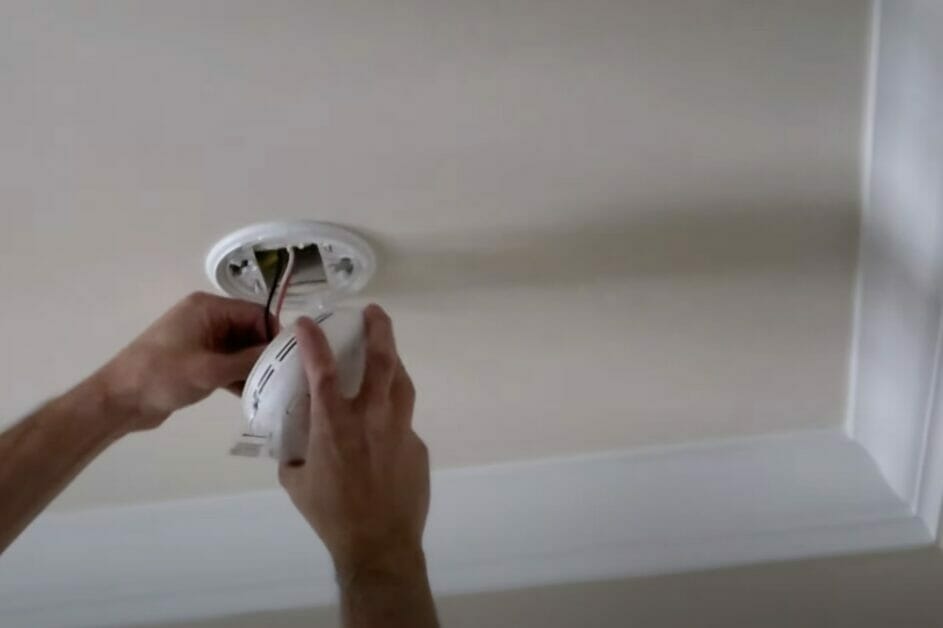
- Align the smoke detector with the base you’ve attached to the ceiling. Gently push the detector into the base until it clicks into position. This ensures it’s securely mounted.
Step 7: Test the Smoke Detectors
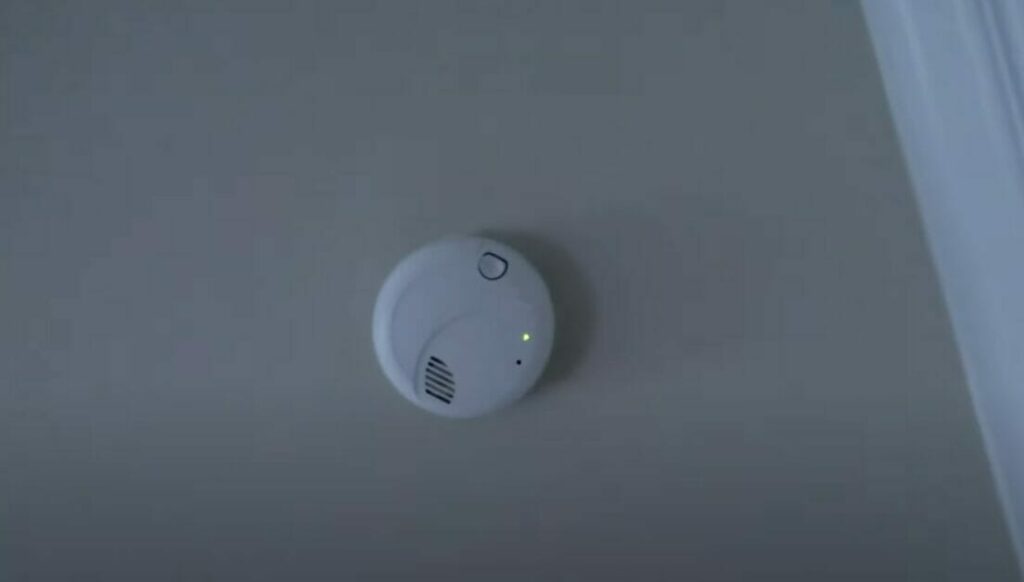
- After installing all detectors in various locations, it’s crucial to test their functionality.
- Press the test button on each smoke detector. This simulates a smoke alarm and should trigger the alarm sound.
- Confirm that all installed detectors sound off simultaneously, indicating successful interconnection.
There you go! That’s pretty much what installing a hard-wired smoke detector entails – not too complicated but worth every minute invested considering what’s at stake here: Your safety and peace of mind!
Common Issues with Hard Wired Smoke Detectors
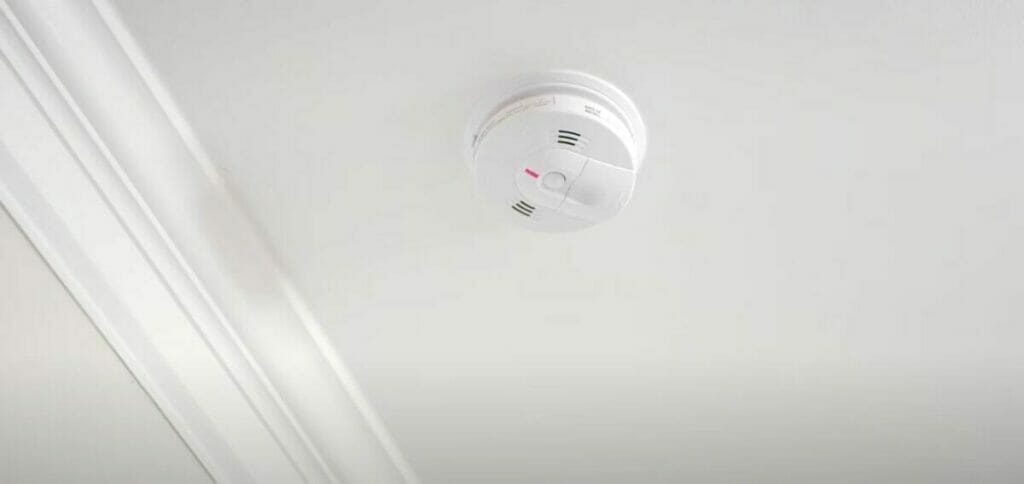
It’s a fact: hard-wired smoke detectors are lifesavers. Yet, like any technology, they, too, can have their share of problems. Here we’ll dive into some of the most common issues with these devices.
Now, one significant issue is false alarms. It’s frustrating when your detector sounds off without smoke or fire. This usually happens due to dust accumulation or insects entering the device.
Another problem? Chirping noises, and believe me, it’s not because they want to sing you a lullaby! It typically indicates that your battery needs replacing. Even hard-wired detectors have backup batteries that need changing now and then.
And don’t forget about the possibility of wiring problems. Remember, these devices are connected directly to your home’s electrical system; hence, any glitches might affect them too.
Here’s a quick rundown:
| Issue | Likely Reason |
|---|---|
| False Alarms | Dust Accumulation/Insects |
| Chirping Noises | Battery Replacement Needed |
| Wiring Problems | Electrical System Glitches |
Let’s also talk about age-related wear and tear. Most detectors have a lifespan of around ten years, after which performance can decline drastically.
Lastly, but certainly not least (if that’s even a word), there are installation errors – wrong placement can lead to inefficient operation or false alarms!
- False alarms: Usually due to dust accumulation or pesky bugs.
- Chirping noises: Battery replacement needed.
- Wiring problems: Blame it on those electrical system glitches!
- Wear and tear: Everything ages; unfortunately, so does your detector.
- Installation errors: Position matters; get it right, folks!
Always remember – no device is perfect, but understanding its quirks makes for better handling!
Tips on Maintaining Your Hard Wired Alarm System
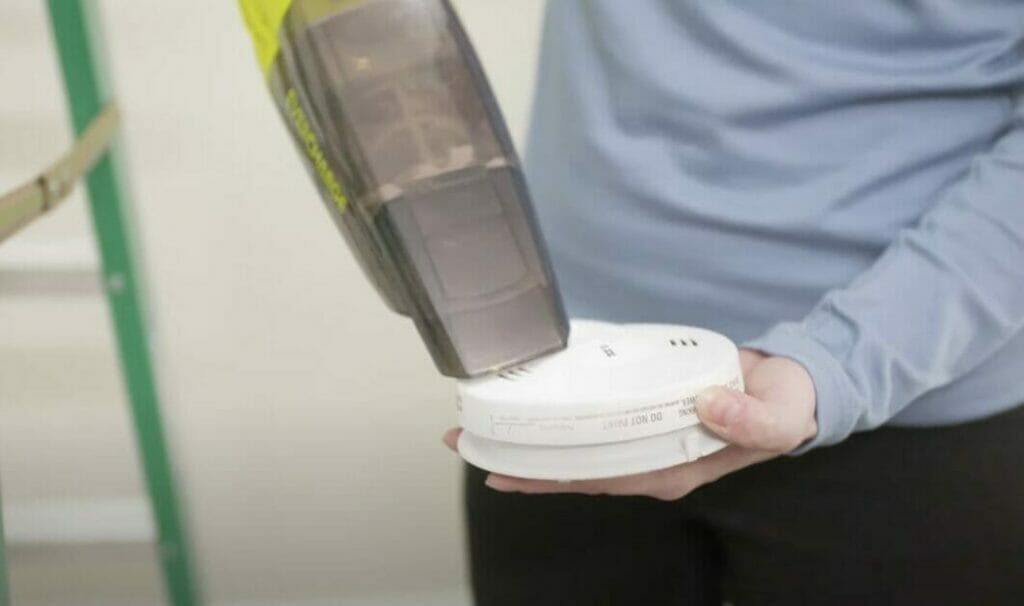
Once you’ve installed a hard-wired smoke detector, it’s not just about letting it sit there. Consistent maintenance is key to protecting your home from potential fire threats. I’ll share some handy tips for keeping your alarm system in shape.
First and foremost, regular testing is essential. Most experts recommend checking your alarms at least once a month. You can do this by pressing the test button located on the device. If it beeps loudly, that means it’s working as expected.
Cleanliness matters too! Dust and debris could interfere with the detector’s functionality over time. So, clean your devices every six months using a vacuum cleaner or canned air blower.
Don’t ignore the power of replacements, either! The backup batteries should be replaced annually, even if they seem fine during testing — just to be safe.
Here are these tips in a nutshell:
- Test alarms monthly.
- Clean detectors every six months.
- Replace backup batteries annually.
Finally, remember that nothing lasts forever — not even hard-wired smoke detectors. Plan for complete replacement of each unit approximately every ten years or earlier if the manufacturer suggests.
You see, maintaining your hard-wired alarm system isn’t rocket science! With regular care and attention, you can ensure these vital devices continue protecting what matters most – because there’s no room for compromise regarding safety!
| Maintenance Action | Frequency |
|---|---|
| Testing | Monthly |
| Cleaning | Semi-annually |
| Battery Replacement | Annually |
| Total Unit Replacement | Every 10 years |
Remember: These guidelines are general suggestions; always consult with the specific recommendations provided by your device’s manufacturer.
Legal Aspects: Complying with Safety Standards and Regulations
Regarding home safety, I can’t stress enough the importance of hard-wired smoke detectors. They play an integral role in keeping us safe from potential fire hazards. But here’s the kicker – it’s not just about having a smoke detector; it must also meet specific safety standards and regulations.
In the United States, these safety standards are dictated by agencies like the National Fire Protection Association (NFPA) and local building codes. Notably, NFPA 72 — National Fire Alarm and Signaling Code — provides detailed guidelines for smoke alarm installation.
Here are some key points:
- The code stipulates that smoke alarms should be installed in every sleeping room, outside each separate sleeping area, and on every level of the home.
- It also recommends interconnecting all smoke alarms throughout the home so that if one sounds, they all do.
Now let’s talk about hard-wired detectors specifically. These devices must comply with UL 217 standard for Smoke Alarms or UL 268 standard for Smoke Detectors for Fire Alarm Systems. Both standards ensure that your device will function properly when you need it most.
And there’s more! In addition to national regulations, many states have their specific requirements:
| State | Requirement |
|---|---|
| California | Buildings undergoing repair or alterations must provide power to hard-wired smoke detectors from the building’s electrical system rather than batteries. |
| Florida | Buildings undergoing repair or alterations must power hard-wired smoke detectors from the building’s electrical system rather than batteries. |
So yes, it might seem like there’s a lot to consider when picking out your hard-wired detector – but believe me when I say that adhering to these legal aspects can save lives! So remember, folks – stay informed and prioritize safety first!
Making the Switch: Transitioning from Battery to Hard Wiring
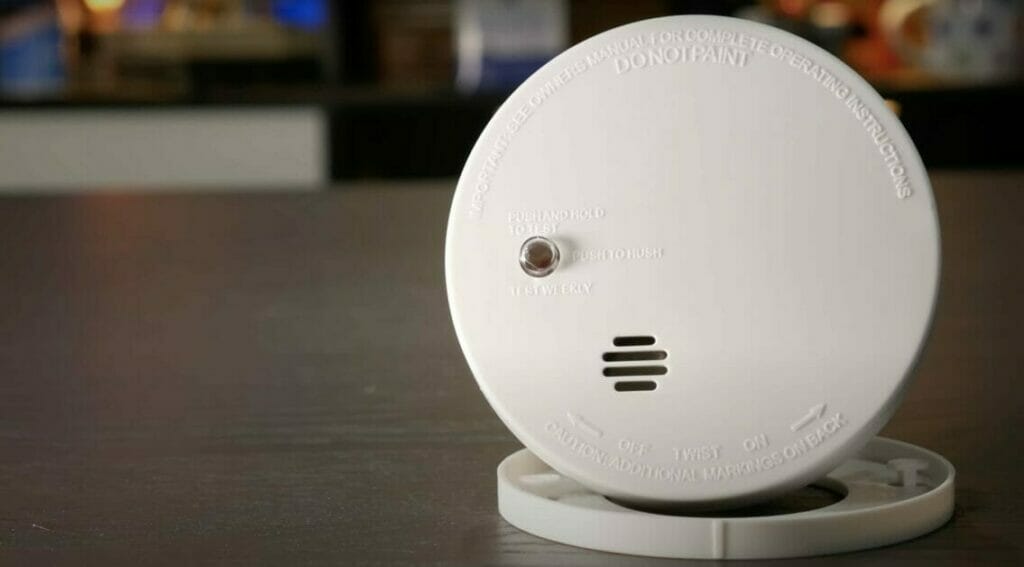
Deciding to transition from battery-operated smoke detectors to a hard-wired system is not only a smart move but also one that could save lives. Let’s dive into why you might consider making this switch.
Firstly, hard-wired smoke detectors are powered by your home’s electrical system. They’re always on watch, ready to alert you at the first sign of danger. Plus, they’ve got backup batteries for when power outages occur.
I’ll tell you, folks have asked me – “Ty, what if there’s no electricity?” Well, worry not! These devices run on both electricity and battery power. When your house loses power, these gadgets automatically switch to battery backup. It’s like having an extra layer of protection!
Now let’s talk about connectivity among units in the house. With battery-powered smoke detectors, each operates independently. But here’s the kicker with hard-wired ones – all units are interconnected! If one alarm triggers in any part of your home, all other alarms go off too! Imagine cooking something smoky in the kitchen, and your bedroom detector also goes off–talk about being safe than sorry!
Here’s another advantage – these hard-wired systems have an end-of-life feature that’ll let you know when they need replacement, typically every ten years.
- Always powered
- Backup batteries during blackouts
- Interconnected alerts throughout the home
- End-of-life feature
Switching from battery-operated detectors to hard-wiring might seem like a big deal but trust me, it’s worth it for peace of mind alone.
Remember, guys, safety should never be compromised or taken lightly! With hard-wired smoke detectors, you’re stepping up your fire safety game–a step I’d highly recommend everyone take!
References
Organizations:
- National Fire Protection Association (NFPA). http://www.nfpa.org/
- Consumer Product Safety Commission (CPSC). https://www.cpsc.gov/
Books:
- “Fire Safety: A Reference Handbook” by Judith Anderson
- “Residential Fire Rescue: Preparing for the Worst” by Joseph Fleming
Video References:
Super Five
Technology Connections
Platoon Garage
The Home Depot
